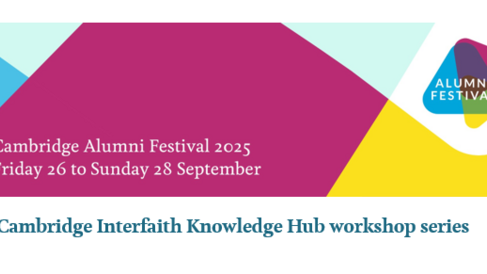Faculty of Divinity, Cambridge

About
The use of language pervades every aspect of life within the Judeo-Christian faith traditions. But the remarkable diversity of languages and types of speakers within religious communities has been overlooked. How does linguistic and cognitive diversity affect humanity’s ability to conceptualise and represent God in the Judaeo-Christian tradition?
Join researchers from the God, Language and Diversity project to explore connections between the linguistic, theological and ethical dimensions of classical rabbinic midrash (scriptural interpretation), on the one hand, and empirical-linguistic approaches to processes of human language comprehension and interpretation, on the other.
While midrashic interpretations of scriptural language have often been characterized as surprising, creative, and unusual, the researchers aim to explore whether these approaches to text and language may be drawing on forms of cognitive processing that in fact occur in everyday language interpretation, but which are less available to conscious awareness.
This session is part of an Alumni Festival interactive workshop series organised by the Cambridge Interfaith Knowledge Hub. Advance registration is essential.
Background to this event
The God, Language and Diversity project is led by Joanna Leidenhag (University of Leeds) and explores how different religious traditions relate to language diversity. At Cambridge, Prof Daniel Weiss (Divinity) and Prof Napoleon Katsos (MMLL) lead an interdisciplinary investigation. This work is funded by the John Templeton Foundation. More on God, Language and Diversity.
